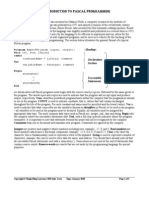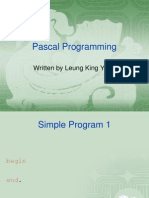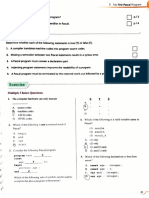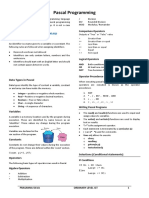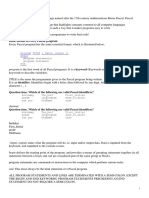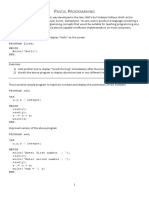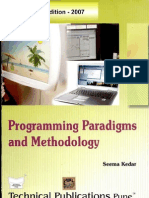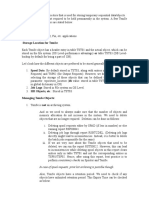0% found this document useful (0 votes)
16 views4 pagesConcept Project Pascal Part 1
This project report explores three programming paradigms: procedural (Pascal), functional (Scheme), and logic programming (Prolog), comparing their syntax, structure, and efficiency. It includes detailed sections on Pascal programming, including grammar differences with C, control statements, and example programs. The report also discusses converting Pascal programs to Scheme and Prolog, culminating in comparisons and conclusions about the paradigms.
Uploaded by
naif alhrbiCopyright
© © All Rights Reserved
We take content rights seriously. If you suspect this is your content, claim it here.
Available Formats
Download as PDF, TXT or read online on Scribd
0% found this document useful (0 votes)
16 views4 pagesConcept Project Pascal Part 1
This project report explores three programming paradigms: procedural (Pascal), functional (Scheme), and logic programming (Prolog), comparing their syntax, structure, and efficiency. It includes detailed sections on Pascal programming, including grammar differences with C, control statements, and example programs. The report also discusses converting Pascal programs to Scheme and Prolog, culminating in comparisons and conclusions about the paradigms.
Uploaded by
naif alhrbiCopyright
© © All Rights Reserved
We take content rights seriously. If you suspect this is your content, claim it here.
Available Formats
Download as PDF, TXT or read online on Scribd
/ 4










